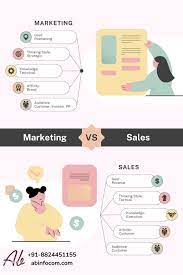Unlocking Global Success: International SEO Campaigns Demystified
The Power of International SEO Campaigns
Expanding your business globally requires more than just a website – it demands a strategic approach to reach international audiences effectively. This is where International SEO campaigns come into play, offering a pathway to enhance your online presence across borders and languages.
Understanding International SEO
International SEO involves optimising your website to rank in different countries and languages. It goes beyond traditional SEO by considering cultural nuances, local search behaviours, and regional search engines. By tailoring your content and technical aspects to diverse audiences, you can attract relevant traffic from around the world.
The Benefits of Going Global
Launching an international SEO campaign opens up a world of opportunities for your business. It allows you to:
- Expand Your Reach: Reach new markets and tap into a larger pool of potential customers.
- Increase Visibility: Enhance your brand’s visibility on a global scale, boosting brand recognition.
- Drive Traffic: Attract qualified leads from different regions, increasing website traffic and conversions.
- Improve ROI: Achieve better return on investment by targeting high-value international markets.
Key Strategies for Success
To succeed in international SEO, consider the following strategies:
- Localise Content: Translate and adapt your content to resonate with local audiences while maintaining brand consistency.
- Optimise for Multilingual SEO: Implement hreflang tags, language meta tags, and language-specific URLs to signal language variations to search engines.
- Understand Cultural Differences: Tailor your messaging and imagery to align with cultural preferences in target markets.
- Local Link Building: Build backlinks from reputable local websites to improve authority and relevance in specific regions.
- Maintain Technical Excellence: Ensure that your website is technically sound across different geographies, including fast loading times and mobile responsiveness.
The Future of Global Expansion
In an increasingly interconnected world, the importance of international SEO campaigns cannot be overstated. As businesses strive to reach diverse audiences worldwide, investing in tailored strategies for global expansion is key to staying competitive and relevant in the digital landscape.
Six Essential Strategies for Optimising International SEO Campaigns
- Research and understand the target market’s search behaviour and preferences.
- Localize website content to cater to the language and cultural nuances of the target audience.
- Optimize meta tags, URLs, and headings with relevant keywords in the target language.
- Build high-quality backlinks from reputable international websites to improve global SEO visibility.
- Utilize hreflang tags to indicate language and regional targeting for different versions of a webpage.
- Monitor performance using international SEO tools like SEMrush or Ahrefs to track rankings across different countries.
Research and understand the target market’s search behaviour and preferences.
To maximise the effectiveness of international SEO campaigns, it is crucial to conduct thorough research and gain a deep understanding of the target market’s search behaviour and preferences. By delving into how users in different regions search for products or services online, businesses can tailor their content and keywords to align with local search trends. This insight allows for the creation of targeted strategies that resonate with the target audience, ultimately driving organic traffic and enhancing visibility across diverse markets.
Localize website content to cater to the language and cultural nuances of the target audience.
Localizing website content is a crucial aspect of successful international SEO campaigns. By adapting your content to the language and cultural nuances of your target audience, you can establish a deeper connection with users and enhance their overall experience on your website. From translating text to incorporating region-specific references and idioms, localizing content shows that you value and respect the diversity of your global audience. This approach not only improves user engagement but also boosts your website’s visibility and credibility in international markets.
Optimize meta tags, URLs, and headings with relevant keywords in the target language.
To maximise the effectiveness of international SEO campaigns, it is crucial to optimise meta tags, URLs, and headings with relevant keywords in the target language. By incorporating specific keywords that resonate with the local audience, businesses can significantly improve their visibility and ranking on search engines in different regions. This strategic approach not only enhances the overall user experience but also signals to search engines the relevance of the content to users searching in a particular language, ultimately driving targeted organic traffic to the website.
Build high-quality backlinks from reputable international websites to improve global SEO visibility.
To enhance your global SEO visibility, a crucial tip is to focus on building high-quality backlinks from reputable international websites. By establishing strong connections with trustworthy sites across different regions, you not only boost your website’s authority but also signal to search engines the relevance and credibility of your content on a global scale. This strategic approach to backlinking plays a significant role in expanding your reach and increasing visibility in diverse markets, ultimately driving organic traffic and improving your overall international SEO performance.
Utilize hreflang tags to indicate language and regional targeting for different versions of a webpage.
By utilising hreflang tags in your international SEO campaigns, you can effectively signal to search engines the language and regional targeting of different versions of a webpage. This strategic use of hreflang tags ensures that users are directed to the most relevant content based on their language preferences and location, ultimately enhancing user experience and increasing the visibility of your website across various regions and languages.
Monitor performance using international SEO tools like SEMrush or Ahrefs to track rankings across different countries.
To maximise the effectiveness of your international SEO campaigns, it is crucial to monitor performance using dedicated tools such as SEMrush or Ahrefs. These tools provide valuable insights into your website’s rankings across various countries, allowing you to track keyword performance, analyse competitor strategies, and identify opportunities for improvement. By leveraging international SEO tools, you can fine-tune your strategies, optimise content for specific regions, and ultimately enhance your global online visibility.









